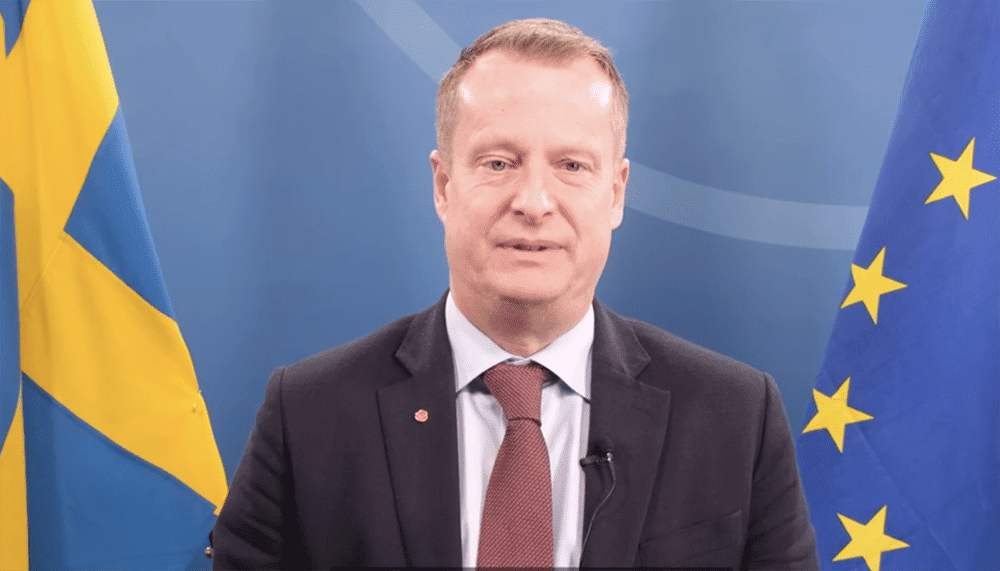Speech by Anders Ygeman, Minister for Integration and Migration with responsibility for sport
Towards a green and sustainable deal for sport, digital conference, 3 March 2022, European parliament, Strasbourg
Dear Ministers and participants,
Thank you for the opportunity to address this conference as a part of our common EU Trio-Presidency with France, Czech Republic and Sweden.
A special thanks to my colleague Roxana for inviting me to speak.
This conference is held in Strasbourg – the centre of respect for human rights and rule of law in Europe.
I think this is of great importance.
Because even though the topic of this conference is quite another, I first wish to address the current situation in Europe.
Participants, Russia’s invasion of Ukraine is unprovoked, illegal, and unjustifiable.
The Russian political leadership bears full responsibility for this.
The military aggression from Russia threatens international peace and security and is a flagrant violation of international law.
It is a serious breach of the European security order.
The Swedish Government supports European and International sport organisations boycott of sporting exchange with Russia.
However, we also need to discuss other issues simultaneously and the topic for today’s discussion is very important.
We all know the power of sport for societal change.
To inspire and to unite people.
Now, we – Governments, sports organisations, and their communities – need to find ways to use this power to limit our environmental impact.
We need to be a part of the solution for a sustainable future.
The Agenda 2030 requires changed at both individual and societal level.
The Sustainable Development Goals – both the economic, social and environmental – must be achieved for all people, in all parts of society.
To reach the goals, we need to establish stronger cooperation’s and partnerships.
And sport has the great power to bring these together.
People, networks and organisations that are committed to sport and sustainable development.
I would like to give two concrete examples from my country on how this can be translated into something concrete.
First, the Swedish Sports Confederation and its members has created a checklist for sustainable sport events.
This list consists of 40 aspects of sustainability with a number of inspirational action points.
The points include everything from choosing environmentally friendly team clothing to transports and waste management.
This initiative is an attempt to collect and share the knowledge on sustainability that already exist among sports federations and associations in Sweden.
The idea is simple – to inspire each other to do the right thing.
I am happy to see that this checklist has been created in close cooperation between the Swedish Sports Confederations partner organisations in Latvia, Lithuania, and Estonia.
Another inspiring example is a project funded by Sweden’s innovation agency.
The aim of the project is to reduce emissions of carbon dioxide for travel linked to organized sports.
This is to be done through mapping of current travel behaviours.
The data collected is then being analysed and form the basis for an action plan for every participating organisation to implement.
These are examples on how sport can be a progressive force for sustainability:
- to combat climate change,
- to strengthen cross border and generational solidarity,
- to include the sport movement as a part of the transition.
I’m grateful for the work done by so many for a green and sustainable deal for sport.
I’m also hopeful that today’s conference will strengthen our joint efforts to fulfil our common goals.
Because I’m convinced, when we meet great challenges, we all need to work together.












